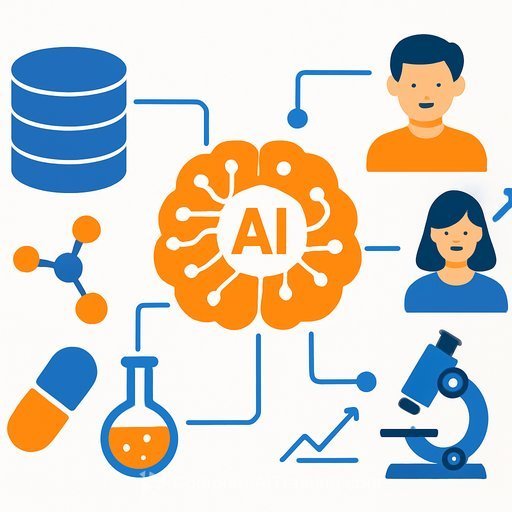Trusted AI enhances topic and journal discovery in the Web of Science Research Assistant
Every research question demands focus and time. The problem: thousands of papers, scattered clues, and manual steps that slow progress.
The Web of Science Research Assistant now adds two agentic AI guides - Topic Explorer and Find a Journal - to reduce that drag. They surface relevant options, handle the busywork, and keep you in control of the next move.
Built on trusted data, built for responsible use
These guides work on top of the Web of Science Core Collection, so the outputs reflect journals that meet clear, publisher-agnostic quality criteria. You get interactive prompts and structured outputs without needing advanced search skills or specialized visualization tools.
Earlier this year, agentic AI was added to the literature review guide, helping researchers refine questions, tune search strategies, and compile a focused, editable report. The same approach now supports topic exploration and journal selection - with multi-step reasoning, clear context, and user-driven paths.
Topic Explorer: faster topic discovery
Start with a keyword or a detailed phrase. The guide returns plain-language definitions, subtopics, and related topics that break complex areas into workable parts.
- See subtopics and connections to broaden or narrow your focus.
- Explore related topics, generate trend visuals, or surface leading authors and institutions.
- Pick your next step; the agent handles the behind-the-scenes querying.
The result is a clean, interactive flow that helps you form a strong base for further work - without getting stuck in manual mapping.
Find a Journal: smarter recommendations for submission
Choosing the wrong journal wastes time. This guide meets you where you are - early idea, working draft, or ready-to-submit manuscript - and offers relevant options with clear context.
- If you have a title and abstract, a manuscript-based engine analyzes content and ranks journals using Master Journal List data.
- If details are sparse, it switches to topic-based search in Web of Science to provide meaningful recommendations.
- Apply interactive filters to home in on fit, including scope signals and indexing.
Each recommendation appears on a card with publisher, country, ISSN, indexing details, and impact indicators, including data from Journal Citation Reports. That way you can compare options quickly and avoid avoidable rejections.
Why researchers can trust these agents
- Grounded in authoritative sources: Outputs draw from the Web of Science Core Collection and Journal Citation Reports.
- Quality evaluated: Accuracy, relevance, and interpretability are tested against internal frameworks.
- Built with the academic community: Feedback from institutions shapes how the guides work and what they show.
The goal is simple: save time on high-friction tasks while keeping expert oversight front and center.
Practical ways to use it today
- Exploring a new area: Enter a phrase, review definitions, scan subtopics, visualize trends, and flag key authors or institutions.
- Early-stage planning: Use topic-based journal search to sketch a target list before writing.
- Preparing a submission: Paste your title and abstract, apply filters for requirements, and compare journal fit with clear signals.
- Literature review: Use the AI-guided review to sharpen questions and compile a focused summary you can edit and share.
Want structured training to sharpen your AI skills for research workflows? Browse AI courses by job.
Watch a brief demo of the agentic AI guides in the Web of Science Research Assistant.
Your membership also unlocks:






